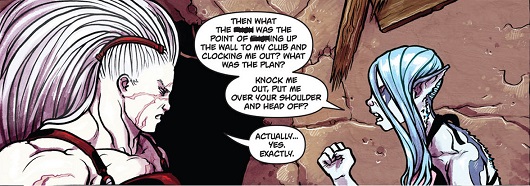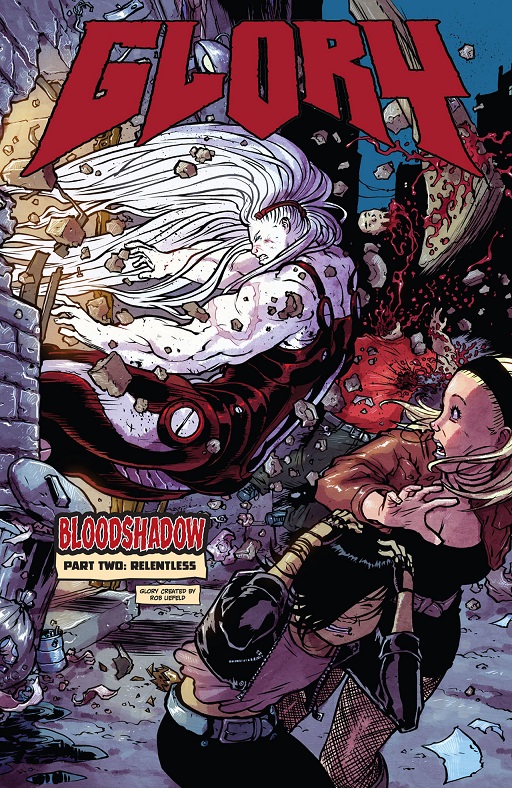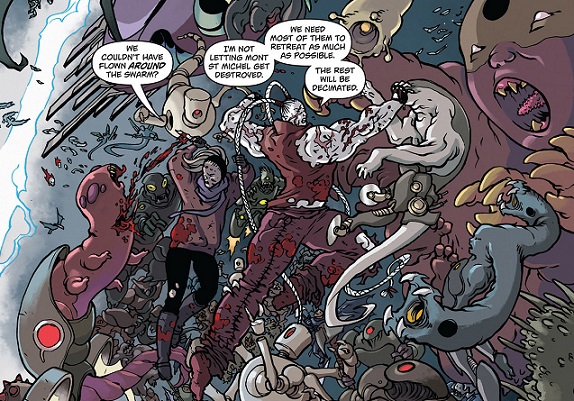
Stop me if this sounds familiar. Take an old Rob Liefeld superhero title, which never had been any good but had sold on hype back in the nineties, put some young up and coming creators on it, then make sure that whatever they do is nothing like what anybody expected when they first heard about the revamp, but is critically well received. This time it’s Glory, not Prophet we’re talking about. Sadly Glory didn’t quite have the same success as Prophet has had and it’s already been cancelled, but don’t let that stop you from trying it: there are only two trade paperbacks to pick up, for a total of twentyfive bucks, telling a complete if perhaps slightly rushed story.
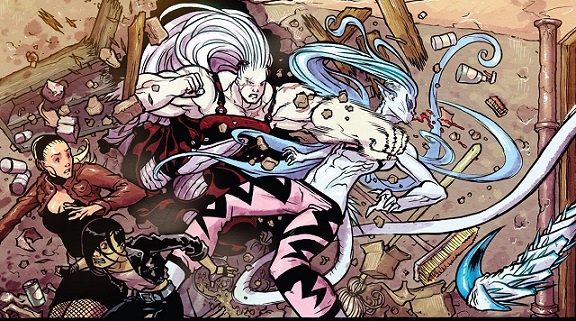
Originally Glory was nothing more than a Wonder Woman clone with bigger tits and no personality. I’d forgotten that Jo Duffy handled the writing on her original series, but anything interesting she did was let down by the subpar artwork, by Mike Deodato and later on Ed Benes, two artists I’m continually surprised are still getting work. There also was an aborted relaunch around 2000, when Alan Moore was briefly working with Liefeld and proposed a new backstory for Glory, which only lasted two issues or so.
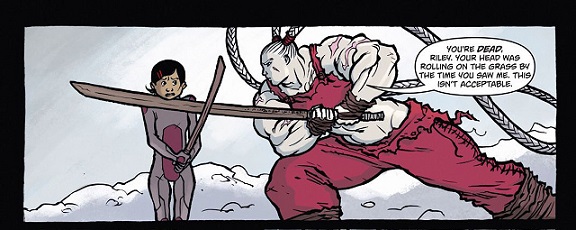
I didn’t know Joe Keatinge or Sophie Campbell’s work before I picked up the first Glory trade, but Sophie Campbell’s artwork looked interesting while people had said good things about Keatinge’s writing. Campbell’s Glory is huge, sticking head and shoulders above the other characters, massive,muscled arms and legs. Meanwhile the reader’s viewpoint character, Riley, is tiny, supposedly a young adult woman, but looking more like a child than anything else even amongst the human characters. As I said before, there’s a lot of gore, but Campbell is also good at drawing quieter scenes; I like her facial expressions, especially when people are laughing. Her artwork is manga influenced, but not in the usual way
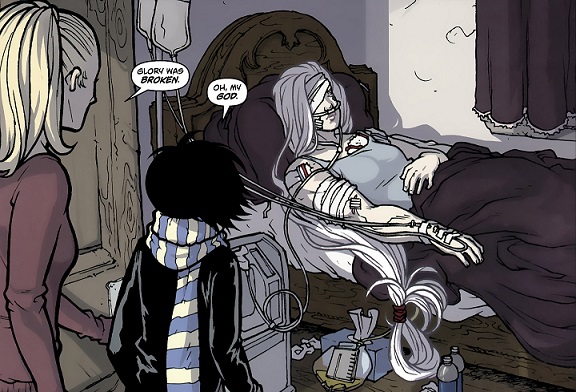
Riley has been haunted by dreams of Glory since she was a child, now she’s looking for Glory, whom nobody has seen in years or decades. She ends up in Mont St Michel, where she meets Gloria West (a nod to the Alan Moore series) who used to be Glory, but not anymore. The real Glory we first see in bed, injured, “broken”. She’s a victim of the war between her mother, ruler of a warrior clan once considered gods and her father, king of a people so savage they were once called demons. There’s more to this war than is at first revealed and Riley may have been drawn to Glory as to stop as to help her; Glory becomes a literal monster if pushed too far, while Riley’s dreams of Glory have reached the future and it’s not nice.
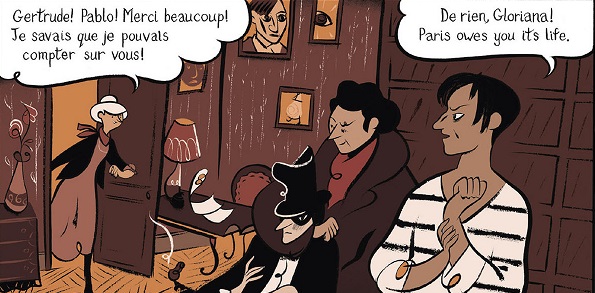
But it’s not all doom and gloom; there are flashbacks of Glory running around 1920ties Paris with the Lost Generation fighting Fantomas. There’s Henry, the demon-medic with a fondness for ancient photo cameras. There are the allusions to her past adventures, some very lighthearted and silver agey. There are also Glory’s younger sisters, who are both awesome. But what impressed me the most was the casual, matter of fact lesbian relationship between Glory and Emilie, her sidekick/the Etta Candy standin, as well as later with Riley. In all, it’s a shame the series had to end so quickly, but at least we got a complete story.
UPDATE: since Sophie Campbell has gone public with her transition, I thought it only decent to update her pronouns here.
